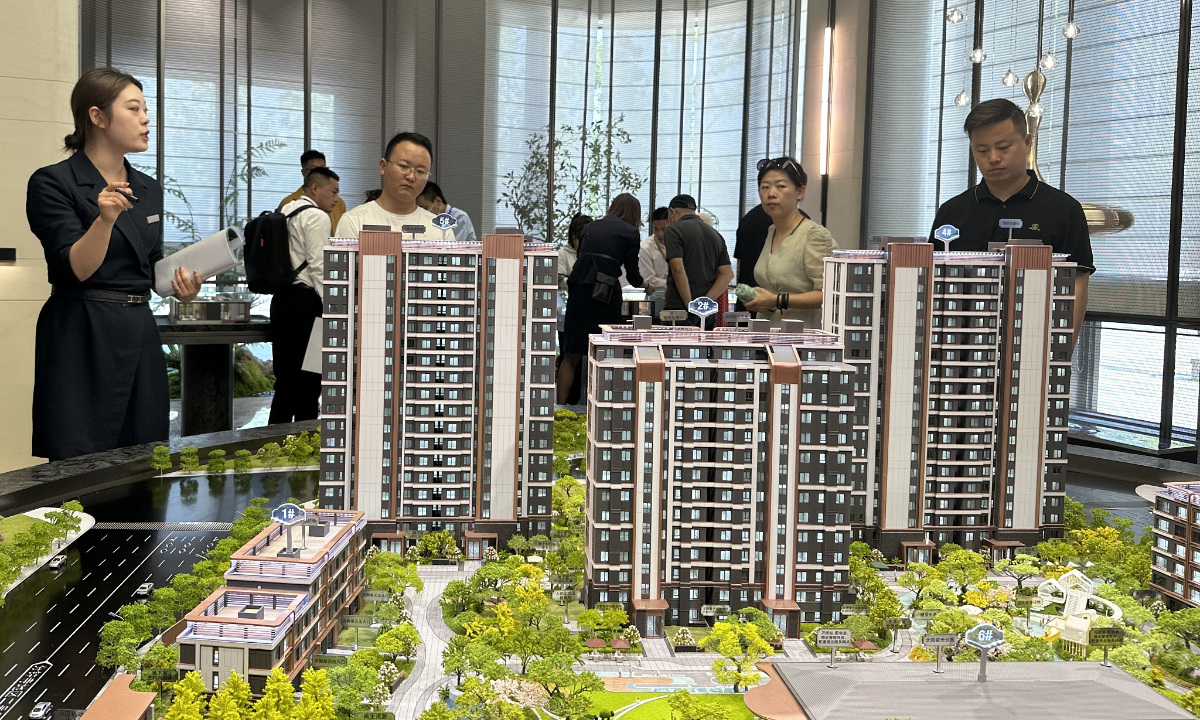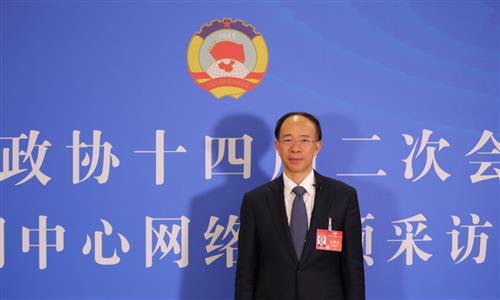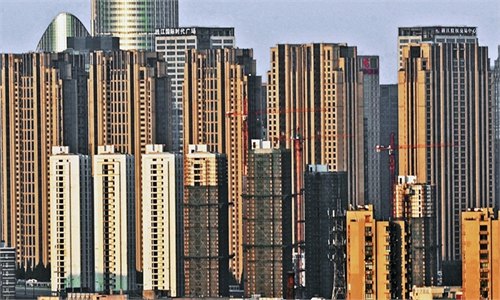
real estate Photo:VCG
China is actively taking measures to stabilize its real estate market, the National Financial Regulatory Administration (NFRA) said on Wednesday, as it emphasized the need to promote a virtuous cycle between the financial sector and the housing market.
With nationwide property industry meetings, China is pushing to promote the country's challenged housing market.
During the NFRA's meeting on Wednesday, the administration stressed the need to implement city-level real estate financing coordination mechanisms and enhance the efficiency of the new white list mechanism, to meet the financing needs of real estate enterprises.
It is part of the administration's latest effort to support the housing market. Li Yunze, head of the NFRA, told reporters on Monday that the administration will continue to aid the economy's recovery and improvement, which will include reducing the interest rates on existing first-home loans to reduce buyers' interest expenses.
In another move, the Shanghai Real Estate Trade Association held a meeting attended by major property developers.
The meeting, held on March 7, saw participation by 11 companies, including China Poly Group, China Resources, China Railway Construction Corp and Shanghai Baohua Group. According to the association's WeChat account, attending companies reached a consensus that Shanghai's real estate market is still undergoing adjustments and participants called for more policy adjustments.
The real estate market often sees a surge in March and April. However, such trends are not evident this year, indicating ongoing adjustments in the market, Hui Jianqiang, a veteran industry analyst, told the Global Times on Wednesday.
Despite an increase in inquiries after the Spring Festival holidays, Shanghai's real estate companies reported low transactions.
Companies have put forth several policy suggestions, calling for improvements in purchase restrictions, land auctions and refining the supervision of pre-sale funds.
In a bid to revitalize the real estate sector, discussions similar to those in Shanghai have taken place across various regions, including Heze in East China's Shandong Province, Hefei in East China's Anhui Province and Wuhan in Central China's Hubei Province.
Recent measures in first-tier cities - Beijing, Shanghai, Guangzhou and Shenzhen - have relaxed purchase restrictions, but these are seen more as a loosening of earlier constraints rather than incentives to boost the market, resulting in limited effects, Hui explained.
Despite downward pressure, there are signs of stabilization in China's real estate market. Data from the National Bureau of Statistics showed a 0.3 percent month-on-month decrease in new home prices in first-tier cities in January, narrowing 0.1 percentage point from December.
The future of real estate sales in first-tier cities heavily relies on policy easing to stimulate the market, Hui stated. He believes that further relaxation of policies could attract external capital to Shanghai's real estate market, potentially outperforming last year's performance.
Local homebuyers in Shanghai are adopting a wait-and-see approach, a resident surnamed Zhang told the Global Times that the market has stabilized but there's no sign of a rapid upturn anytime soon.
Prices for secondhand homes have returned to levels seen in 2019 and 2020, while new home prices are influenced by purchase policies.
"My colleagues from outside Shanghai who have yet to buy a home remain on the sidelines... and do not feel rushed to make a purchase," Zhang added.



